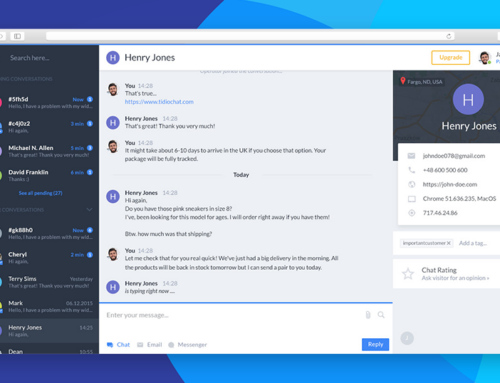
Traditional marketing tactics are based on interruption. You are watching TV and you are interrupted by an advert, you visit a website and a pop-up, well pops up. You answer the phone to that private number and are inadvertent ‘cold called’ to without warning.
In fact, research tells us that we are exposed to approximately 5000 ‘interruptions’ in one form or another every single day. Maybe Gary Vaynerchuk was right when he said that marketers ruin everything…
The thing is that we have become so accustomed to these interruptions that we have evolved to subconsciously block out advertising and marketing messages. Seth Godin described this phenomenon in which people actively block out marketing messages as the wear out effect. That was back in 1994 – over 20 years ago, so why haven’t companies wised up to the fact that interruption style marketing no longer works?
The thing is that we have become so accustomed to traditional interruption marketing that it just isn’t very effective in the modern marketing environment. We both actively and subconsciously avoid traditional marketing techniques, we even go to the lengths of installing ad-blocking software on our computers and devices to avoid receiving unsolicited messages.
It’s useful to think of digital marketing holistically. Just because we are marketing online doesn’t mean that we should completely disregard normal human behaviour. To emphasise this point, lets imagine that you walk into a supermarket on two separate occasions:
Scenario 1: You walk into the supermarket and are met by the smell of freshly baked bread, you follow the scent down to the bakery aisle and are greeted by the baker who warmly greets you and offers a free sample of his freshest batch. You take a slice right from the fresh batch and bite into it. Delicious…
The baker gives you a little backstory into where the grains were grown, he briefly describes how the batch was baked, how he kneaded the dough for 45 minutes to achieve a perfect consistency and how he baked the bread at 300 degrees for 50 minutes to create that soft texture.
Finally, he asks if you would be interested in buying a loaf.
Scenario 2: You enter the store and are suddenly confronted by a weary looking baker. Seemingly from out of no-where he throws the loaf at you and exclaims; “Buy This Bread!”.
He seems to be doing the same thing to anyone and everyone who enters the supermarket. Regardless of whether they want the bread or not.
Which would you be more likely to buy?
What I just described is more or less the real world comparison between permission marketing and interruption marketing.
As crazy as it sounds, the second scenario is essentially how interruption marketing works. We would never act this way in real life, so why do marketers feel it necessary to use this strategy digitally? Even more alarmingly, why on earth would they think it would work?
What is permission marketing?
Permission marketing is not a new marketing strategy, but it is still painfully underused.
Permission marketing can be described as simply approaching a prospect in a value orientated manner. Instead of implementing hard, pushy and desperate sales tactics that immediately turn on the built-in ad-blocking software in our minds, it focuses on building and nurturing relationships.
By educating the prospect, providing value and solidifying a sustainable position as a viable and attractive proposition in the mind of the consumer, permission marketing represents a more efficient way to market. That being said, it is a more complex and contemporary form of marketing, it requires more strategic thinking, more thought and more intelligent planning.
I couldn’t describe it more eloquently than Seth Godin –
“ Permission marketing is the privilege (not the right) of delivering anticipated, personal and relevant messages to people who actually want to get them.
It recognises the new power of the best consumers to ignore marketing. It realises that treating people with respect is the best way to earn their attention.”
Why bother using permission marketing
Aside from the obvious benefits of treating potential customers as real human beings and with a level of respect, the advantage of permission marketing is that it is simply more effective. It generates a return on investment, and the cold hard truth is that is what businesses really care about when it comes to marketing strategy. Prospects are 82% more likely to open marketing messages based on permission style marketing when compared with interruption style marketing.
Moreover, by investing in building and nurturing relationships with potential customers or prospects it makes them infinitely more receptive to actually consuming the marketing messages and largely eliminates the tendency for people to ‘block out’ adverts.
Marketing to people who want to be marketed to
Another important feature of permission marketing is that it is targeted. Unlike interruption marketing, which operates under a strategy of throwing loafs of bread at anyone with a pulse, permission marketing uses qualification.
Potential leads and prospects are qualified through several stages in order to ensure that prospects are primed to be warm and receptive to receiving messages.
Investing resources in marketing to a targeted set of individuals that are motivated to purchase your product or service is infinitely more effective than using a one size fits all approach. Anything else represents wasted resources, time and effort.
Creating value
Permission marketing has value at its heart. Instead of looking at what we can ‘get’ from the consumer, we look at what we can ‘give’. In a consumer driven world in which competition is fierce and we must battle for a small slice of consumer attention, those who are able to give value will undoubtedly be more successful in their marketing efforts.
Building relationships through repetitious, value orientated interactions are at the core of permission marketing. It is only when trust and loyalty are build up through this process that a meaningful brand-consumer relationship can be achieved.
Author: Cameron Scott
About the author : Administrator
Latest videos
Join our mailing list today
Insider offers & flash sales in your inbox every week.
Curabitur non nulla sit amet nisl tempus convallis quis ac lectus dolor sit amet, consectetur adipiscing elit sed porttitor lectus.





